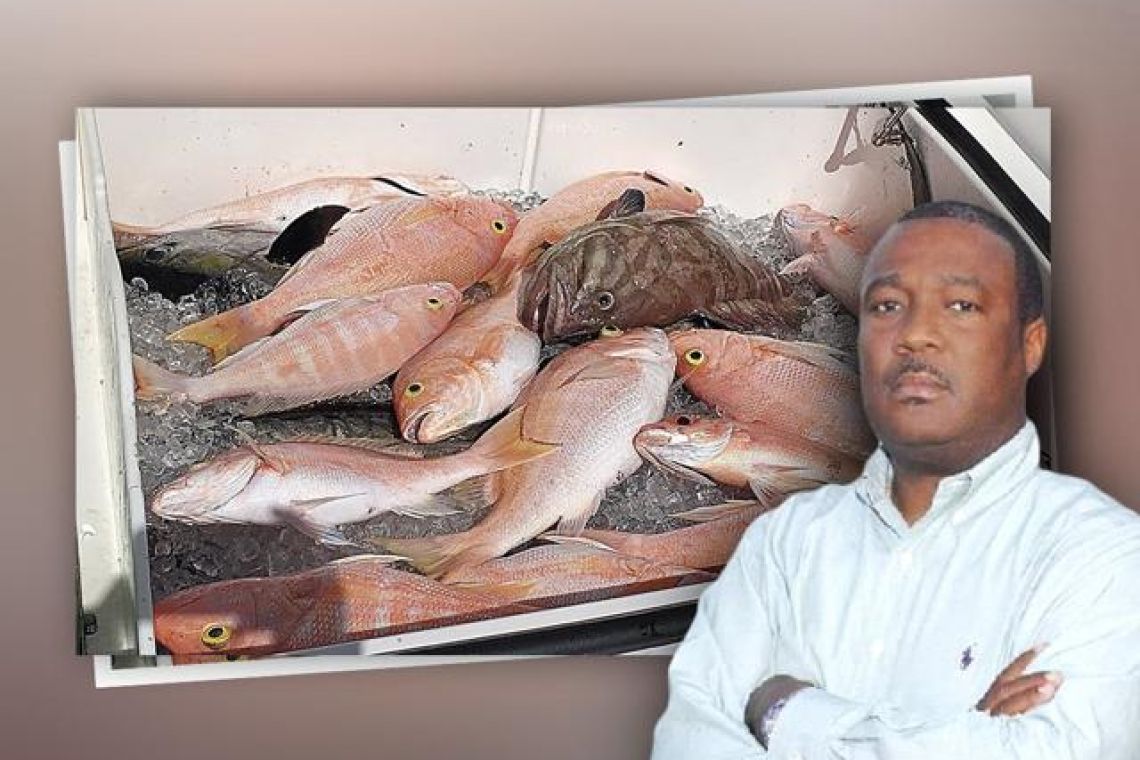President of The Bahamas Commercial Fishers Alliance Adrian LaRoda.
NASSAU, The Bahamas--President of The Bahamas Commercial Fishers Alliance Adrian LaRoda said on Thursday he expects the cost of exported seafood from The Bahamas to the US to increase by as much as thirty per cent because of a ten per cent tariff imposed on exported Bahamian goods to the US.
On Wednesday, US President Donald Trump imposed a 10% base rate tariff on more than 100 countries to take effect on Saturday, April 5.
“Moving forward, in terms of the export, this 10% add-on is going to have an effect not just on the first cost but the second and third costs,” LaRoda said when called for comment.
“The cost to our external partners and buyers could be as much as 20 to 30%, which will have an effect on our business.”
LaRoda said if the US also moves forward with a fine on Chinese-built vessels calling on US ports, prices on exports could increase even more.
“At the end of the day, an increased cost to our buyers will be as much as 50% – 50% on a pound of seafood, which quickly puts us at the precipice of not being able to sell our product,” he said.
LaRoda said he is sure that Trump’s planned tariff on The Bahamas will have an impact.
“We export primarily spiny lobster and minimal other fishery products to the EU and to the US,” he said.
“We export more to the European Union, to the countries like France and to other places within the EU.
“No doubt the 10% tariffs are going to affect us, but this year we probably won’t see an impact until the lobster season starts up again later in the year.”
LaRoda said The Bahamas exports US $100 million per year in lobster and US $15 million a year in scale fish.
The Bahamas crawfish season starts August 1 and ends March 31.
LaRoda said he doubts the 10% tariff will be eliminated, but hopes that commerce in the US will cause a change to tariff policies.
He also said that retail prices for lobster in the US could increase to as much as US $70 per pound.
“Last year, we saw prices where Bahamian lobster was being retailed in some supermarkets in the US up to $45 and $48 a pound,” he said.
“With these new tariffs, I won’t be surprised if we see the $70 a pound for these products.”
He also urged local fishermen to capitalise on meeting the demands of the local market.
“We have concentrated on exports but … we have always looked for a shift in our business where we should concentrate more on meeting our domestic demand in addition to the exports,” he said.
“We want to put some focus on the domestic demand. I think that will probably take us over the hump.”
LaRoda noted The Bahamas is not the only supplier of spiny lobster.
“There are many other countries who export spiny lobster,” he said.
“Our main competitor in this region is Belize. On the other side of the world you have Africa, which exports more spiny lobster products than we do, and they have a direct access to the US.
“They are not going to be suffering the same tariffs and taxes that we suffer on this side of the world.”
He continued, “At the moment, we are currently leading the pack in terms of sustainability, consistency and quality, and that’s how we have to keep it.”
In a statement, the Office of the Prime Minister (OPM) acknowledged the newly imposed tariffs to several Caribbean countries, including The Bahamas, that export duty-free to the United States under the Caribbean Basin Initiative (CBI).
“We will engage with our US counterparts and work collectively with our [Caribbean Community – Ed.] CARICOM partners in response to this development,” OPM said.
“The government has approved a National Trade Policy aimed at diversifying trade. As part of our broader strategy to protect the Bahamian economy, we have already announced a number of measures, including the development of a trade diversification framework. We remain focused on minimising the impact of global trade decisions on Bahamian businesses and consumers.” ~ The Nassau Guardian ~







